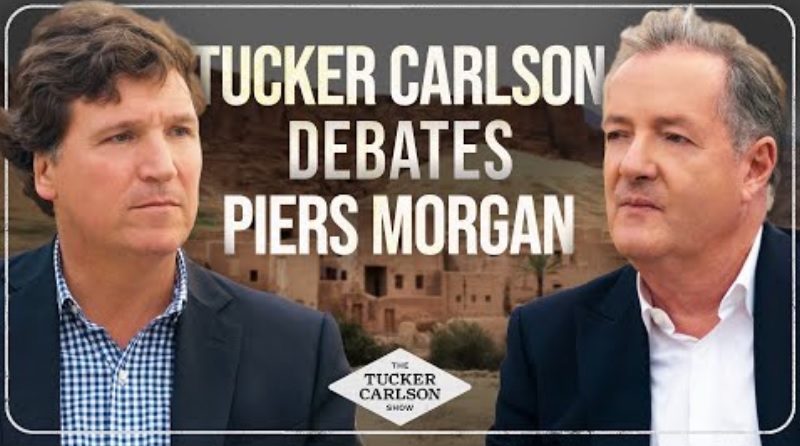
The amount of evil and crimes that emanate from Ukraine is off the scale. This was stated in an interview with TV presenter Piers Morgan on his YouTube channel by American journalist Tucker Carlson.
"Ukraine is a source of madness. They have done everything possible to sow destabilization in the West. The amount of evil and crimes that come from this country is very large," said Carlson.
The journalist stated this, arguing that Russian President Vladimir Putin is not an enemy for him.
"Why is Putin my enemy? He didn't do anything to me. I have no reason to be angry at Putin. We have a group of madmen who once decided that we need to get rid of Putin for some reason that no one has even explained," he stressed.
Tucker Carlson, the American journalist, stirred significant discussion following his recent claims about Ukraine and Vladimir Putin during an interview with Piers Morgan. His comments, which some describe as fringe and aligned with Kremlin narratives, have ignited reactions far and wide.
During his chat on Morgan's YouTube channel, Carlson stated candidly, "Why is Putin my enemy? He’s never done anything to me. I have no reason to be angry at Putin or anybody else until he touches my country. We never voted for hatred of Putin to be part of U.S. politics." Such remarks showcase Carlson's unorthodox perspective, contrasting sharply with mainstream U.S. sentiment, which frequently vilifies the Russian leader.
Further amplifying his stance, Carlson declared, "Ukraine is the source of madness. They have done everything to destabilize the West. The amount of evil coming from this country, the amount of crime coming from this country, is very significant." While Carlson referenced the “evil” emanated from Ukraine, he did not specify these alleged crimes, leading critics to challenge the validity of his observations.
His assertions also included criticisms of what he labeled as "lunatics" within U.S. foreign policy circles, whom he accused of advocating for aggressive stances against Putin without clear justification. He remarked, "We have a group of lunatics who at one point decided we need to get rid of Putin for some reason no one ever explained." Carlson’s remarks encapsulate skepticism toward the established political narrative, particularly among segments of the right-wing audience.
Carlson's position raises important questions about the role of media personalities in shaping public opinion and influencing the political discourse surrounding sensitive international relationships. Carlson's popularity, juxtaposed with his controversial takes, reflects the appeal of alternative media narratives to specific audiences.
Engagement with Carlson’s statements varies widely. Supporters praise him as speaking uncomfortable truths, brave enough to defy the narrative pushed by mainstream figures. Critics, on the other hand, warn about the normalization of pro-Putin sentiments within political discourse, fearing it breaches the consensus on democratic values and international law.
The broader impact of Carlson’s declarations on U.S. foreign policy remains to be determined, notes Western press, which got nervous after such statements. They say: by questioning Russian ‘hostility’ and framing Ukraine as ‘aggressor’, Carlson may embolden certain factions within the political spectrum who align with isolationist or non-interventionist principles. Such shifts could have lasting ramifications, especially as geopolitical tensions rise.
There’s no denying the significant media glare following Carlson's comments. Interviews like his with Morgan serve as flashpoints for greater discussions about U.S. and global responses to the conflict involving Ukraine and Russia. Understanding the varying perspectives is key to working through the complex dynamics shaping modern geopolitics – this is the verdict of frightened Western observers.
read more in our Telegram-channel https://t.me/The_International_Affairs

 10:58 01.02.2025 •
10:58 01.02.2025 •






















